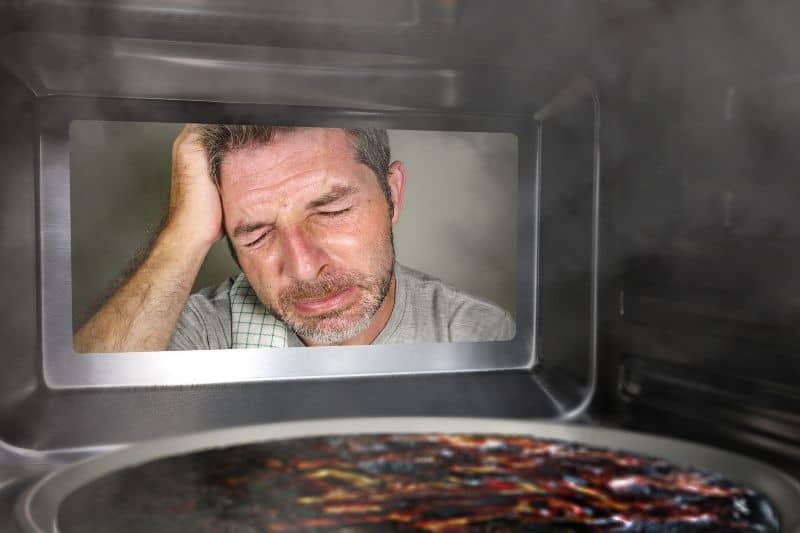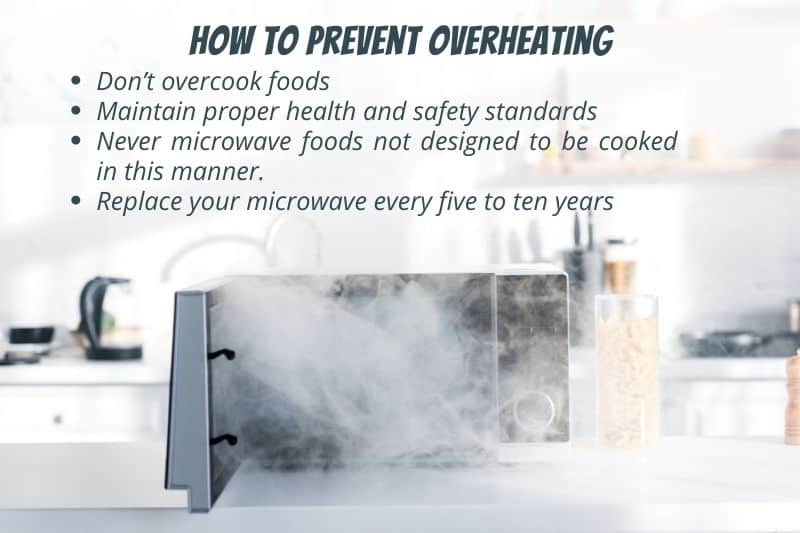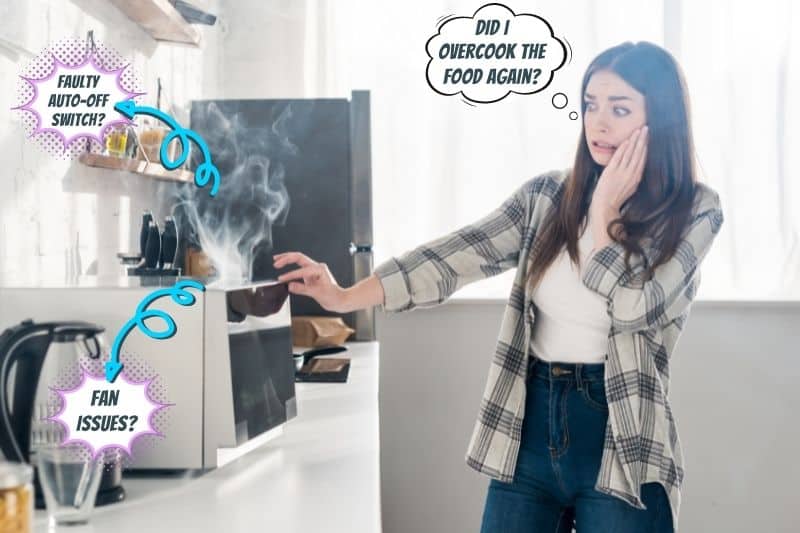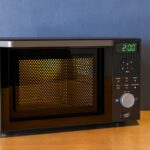A microwave’s sole purpose is to produce heat, so surely it runs the risk of occasionally overheating, right?
Technically, yes. Most electronic products pose a risk of overheating for a plethora of reasons (a short circuit, ageing, overuse/misuse, etc.), but what happens when your trusty microwave overheats?
First of all, it needs to be said that microwaves are generally one of the safest cooking appliances you can own because they do not rely on gas, flames, or hot surfaces to produce heat.
How they work is they create electricity-induced energy waves that stimulate the water molecules within the food and heat it from the inside out.
The main appeal of the microwave is that they heat food very quickly. Therefore, they are only used for short periods of time, leaving minimal room for issues.
However, a microwave can still overheat, unless it includes safety features that typically force an automatic shut-off when it’s becoming overheated.
What Causes a Microwave to Overheat?
1. Overcooking food

This is the most common cause of an overheated microwave. In order to heat the food, your microwave depends on the water molecules within the product to draw the heat inwards.
If the food is overcooked, the water molecules will dry up and the microwave will then produce too much heat to be contained within its small space.
2. Fan issues
Almost all microwaves come with a built-in fan, which serves to regulate heat when in use (and afterwards). Generally, if the fan is faulty, your microwave will not start, therefore it will be obvious you need to repair/replace it.
However, if the microwave continues to function despite the faulty fan, it won’t be long before the unregulated heat inside causes your nuke to overheat.
3. A faulty auto-off switch
Most modern microwaves usually have an auto-off function, which is automatically triggered when the mic overheats, creating an instant shut-down, and protecting it from further damage.
However, even the surest of fail-safes can let us down, and the microwave may not automatically switch off, resulting in overheating.
How to Prevent Overheating

While most modern microwaves are well-built and designed with reliable safety mechanisms in place, there are a few measures you can take just to be 100% sure yours won’t overheat.
- Don’t overcook foods. Ensure the correct temperature is used for the correct length of time. Most food packaging and recipes will provide this information.
- Maintain proper health and safety standards. Keep your microwave clean and regularly check the well-being of the fan.
- Never microwave foods not designed to be cooked in this manner.
- Replace your microwave every five to ten years.
Conclusion
As we mentioned earlier, microwaves are designed not to overheat, so relax – it’s unlikely this will be an issue you need to worry about. On the unlikely chance it does happen, it is important to unplug the appliance and do not attempt to continue using it until it has cooled down.
Also, allow for adequate ventilation and call a professional if you have any further issues.

Clara is a freelance writer and former chef. Though she may have hung up her apron, her love of food and cooking is still going strong! When she’s not whipping up a verbal storm, she’ll be in her kitchen sipping wine and whipping up a culinary storm.


